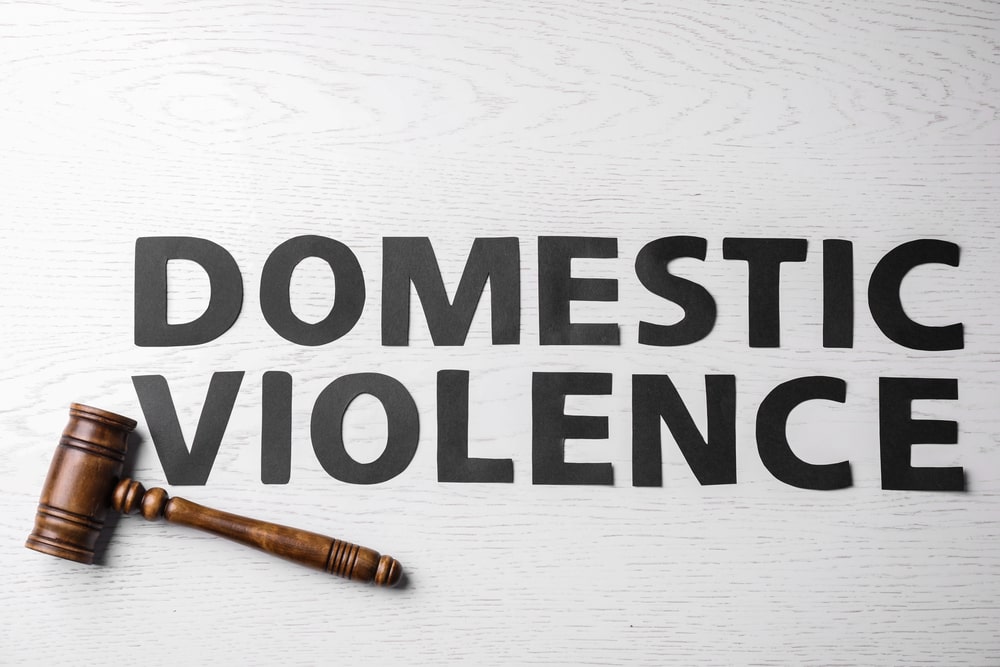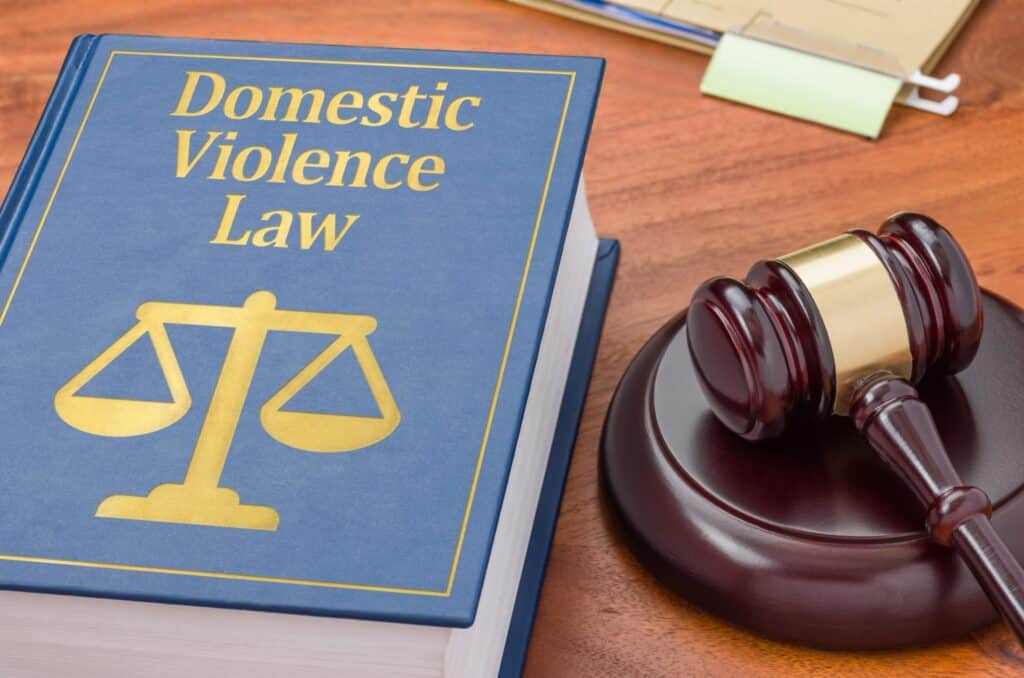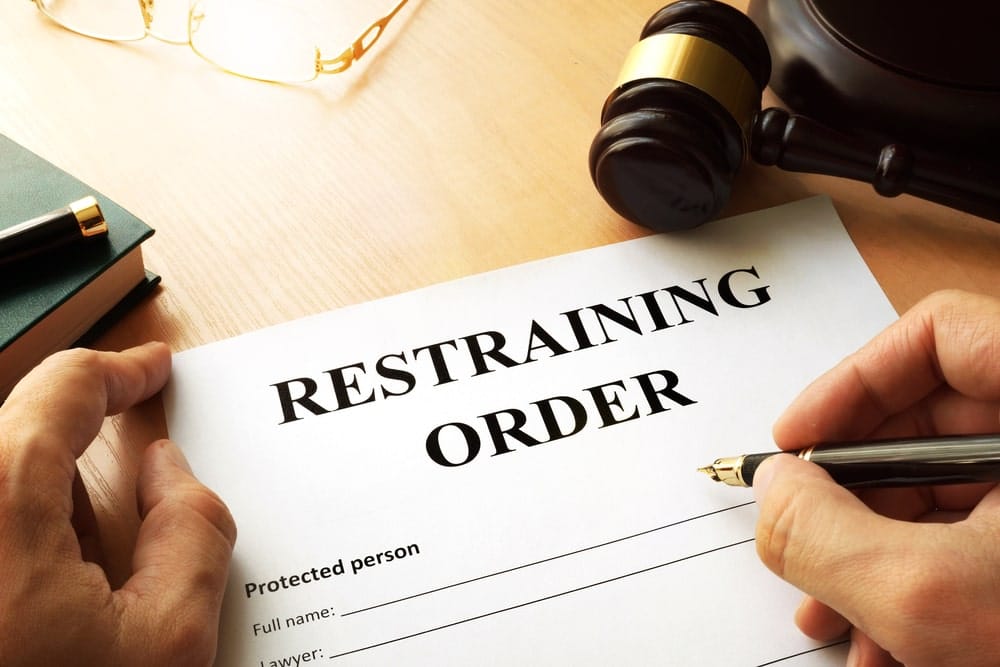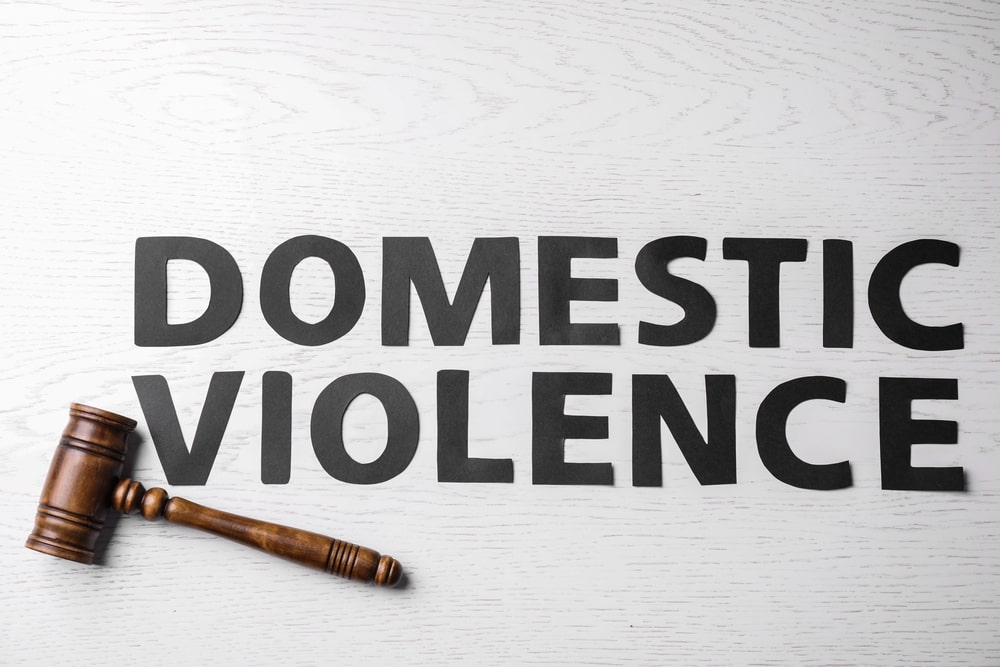As state and federal laws evolve in this area, accurately predicting the specific effects becomes challenging. Maine’s commitment to addressing domestic violence is evident as law enforcement promptly responds to domestic disputes, resulting in arrests and county jail detentions. In York and Cumberland County, specialized domestic violence prosecution divisions staffed by trained prosecutors are dedicated to pursuing domestic violence offenders.
Learn more about the heightened focus on domestic violence offenses and the measures taken to combat this issue, driven by recent high-profile cases that exposed the tragic consequences of domestic abuse.
Call 207-571-8146 or contact us online to schedule a consult with one of our highly skilled criminal defense & OUI lawyers, serving Southern Maine, today.
Table of Contents
Understanding the gravity of Domestic Violence in Maine is crucial, as a conviction can result in significant jail time, spanning from months to even years. The length of jail time is influenced by your criminal record and case specifics. Whether facing a misdemeanor or felony charge, it is imperative to promptly secure the services of a skilled attorney to defend your rights.
Failing to retain the right legal representation can lead to dire consequences. Explore the vital importance of obtaining the appropriate attorney to safeguard your interests throughout the domestic violence process.
Domestic Violence Arrests in Maine
Understanding the Domestic Violence Arrest Process in Maine is crucial when a heated argument with your spouse or significant other escalates and prompts a call to the police. Upon arrival, two officers will separate both parties, seeking accounts and admissions regarding physical actions, threats, or offensive contact. Once evidence of such behavior is established, either through admission or the victim’s statement, an arrest and domestic violence charges typically follow.
It’s common for the alleged victim to express regret or frustration during the arrest, often stemming from the inability to resolve the argument independently. However, it’s important to note that police intervention is not intended to settle disputes, and once involved, an arrest becomes inevitable, leaving the victim with no control over the outcome.
Common allegations in Domestic Violence charges include the following:
Domestic Violence Assault
Domestic violence assault in Maine refers to committing a crime when one person, who is either a dating partner or a household member, engages in acts such as pushing, shoving, striking, punching, or slapping the victim. If these actions meet the legal definition of assault and involve a dating partner or household member, it constitutes a criminal offense categorized as domestic violence assault.
Domestic Violence Terrorizing
Domestic violence terrorizing in Maine involves the defendant communicating a threat that induces a reasonable belief in the victim that a crime will be perpetrated against them. This offense encompasses instances where threatening statements or actions cause the victim to fear for their safety and well-being. The act of terrorizing within the context of domestic violence constitutes a distinct criminal offense under Maine law, aimed at addressing the emotional and psychological harm inflicted upon victims.
Domestic Violence Stalking
Domestic violence stalking in Maine refers to engaging in a pattern of unwanted behavior that causes a person to feel harassed, intimidated, or fearful. It involves willfully and repeatedly following, monitoring, or contacting an individual, or engaging in other intrusive actions that intrude upon their privacy and personal autonomy. Domestic violence stalking is a distinct criminal offense under Maine law, addressing the serious issue of persistent and unwelcome pursuit that inflicts emotional distress and poses a threat to the safety and well-being of the victim.
Call 207-571-8146 or contact us online to schedule a consult with one of our highly skilled criminal defense & OUI lawyers, serving Southern Maine, today.
Maine Domestic Violence Bail Conditions
Once you’ve been arrested for a crime of Domestic Violence, you’ll be brought to the local county jail where either a bail commissioner will set bail or if you can’t afford the bail as set, you’ll be held until you can see a judge.
In all domestic violence cases, the bail commissioner and/or the judge will set the following conditions, at a minimum:
- no contact, either direct or indirect, with the alleged “victim”;
- exclusion from the home or apartment if you resided with the “victim” and he or she will be entitled to exclusive possession of the premises until the case is fully and finally resolved;
- no use or possession of illegal drugs and alcohol if it’s alleged you’d been drinking or using drugs during the domestic dispute;
- no use or possession of dangerous weapons.
In order to ensure that you’re in compliance with your bail conditions as set, the court or bail commissioner will also order that you be subject to random search, seizure, and testing for drugs, alcohol, and dangerous weapons. If you are found to be in violation of your bail conditions, you’ll be charged with a new crime of violating conditions of release and likely held without bail pending resolution of the Domestic Violence charges.
Possible violations of your release that can lead to the withholding of bail regarding domestic violence charges are as follows:
Direct Contact
In the context of domestic violence bail violations in Maine, ‘direct contact‘ encompasses any form of communication or interaction, whether it occurs in person or through various channels. Prohibited direct contact includes actions such as texting, calling, sending letters, or engaging in electronic communication (including social media), as well as physically appearing at the ‘victim’s’ residence, workplace, or place of worship.
Maine courts broadly interpret ‘direct contact’ to encompass all modes of communication and in-person encounters that violate the conditions set forth in the bail agreement.
Indirect Contact
In the context of domestic violence bail violations in Maine, ‘indirect contact‘ refers to communication or interaction that occurs through intermediaries or in ways that maintain a level of separation between the accused and the victim. Examples of prohibited indirect contact include using friends or family members as intermediaries to relay messages to the victim or repeatedly showing up at places where the victim frequents (such as a grocery store, which may constitute stalking).
It’s important to note that any allegation of direct or indirect contact with the victim can lead to immediate arrest and a no-bail hold until the case is resolved. Bail conditions, regardless of the plea entered, remain in full force and effect until the case reaches a resolution, whether through a plea, dismissal of charges, or a verdict following trial.
Call 207-571-8146 or contact us online to schedule a consult with one of our highly skilled criminal defense & OUI lawyers, serving Southern Maine, today.
Domestic Violence Pre-trial Investigation

In domestic violence cases, a comprehensive pretrial investigation is often essential for a favorable outcome. Our law firm recognizes the significance of engaging a private investigator to ensure a thorough examination of the facts. In instances where the alleged victim expresses a desire to recant their statement, the presence of a skilled investigator allows for the collection of a new, credible testimony. If the victim’s stance changes later, their own sworn statement can be introduced as evidence during trial proceedings.
Moreover, there may be witnesses who observed the incident, such as neighbors or friends present during the argument. Obtaining independent statements from these individuals can be invaluable, particularly if their disposition toward the defendant has evolved from hostile to supportive. Discrepancies between their initial statements to the police and subsequent statements to the investigator can be strategically employed to create reasonable doubt or negotiate a favorable resolution with the District Attorney.
We understand that financial resources can pose a challenge, but it’s worth exploring alternatives for funding investigative costs. The Maine Commission on Indigent Legal Defense may be able to provide assistance in this regard. Our experienced team at The Maine Criminal Defense Group can assess your circumstances and help you explore options to manage the expenses associated with a private investigator, ensuring a comprehensive pretrial investigation without undue financial burden.
Call 207-571-8146 or contact us online to schedule a consult with one of our highly skilled criminal defense & OUI lawyers, serving Southern Maine, today.
Domestic Violence Court Appearances in Maine
Arraignment
The purpose of an arraignment is to apprise the defendant of the charges pending and to enter your plea of guilty or not guilty. Bail issues can also be addressed during the arraignment and are usually the first opportunity to have some of the more onerous conditions amended or even stricken.
If the domestic violence charge was a misdemeanor, you won’t need to appear in court unless you failed to retain an attorney. If you retained the services of this law office, we’ll appear on your behalf and plead you not guilty.
If bail needs to be argued, we’ll ask that you appear and attempt to ascertain whether or not the “victim” is in agreement with some of the conditions you’re seeking to have amended.
Dispositional Conference
Once you’ve been arraigned, a date for the dispositional conference will be set. This is the first court appearance where your presence is mandated. However, with that said, there are some courts in the state of Maine that don’t require you to appear at this stage of the proceeding. If you have questions about whether or not your appearance is mandatory, check with your attorney.
During the dispositional conference, the merits of the case are discussed with both the DA and if necessary, the judge. Both sides are trying their best to resolve the case without resorting to trial. However, that’s not always possible and trials are sometimes unavoidable.
With that said, the dispositional conference is where the best outcome can be negotiated. If the parties cannot come to an agreement, the case will either be set for jury selection or for a hearing on a Motion to Suppress Evidence. Some of the possible outcomes from a dispositional conference can include the following:
- Dismissal of all charges
- A deferred disposition agreement
- A filing
- A reduction of charges
- An agreement to plead guilty as charged but for the mandatory minimum sentence
Call 207-571-8146 or contact us online to schedule a consult with one of our highly skilled criminal defense & OUI lawyers, serving Southern Maine, today.
Motions to Suppress Evidence
During a hearing on a motion to suppress evidence, the court will determine whether or not your constitutional rights were violated and if so, whether or not some or all of the evidence sought to be introduced by the prosecutor will be suppressed.
The prosecutor has the burden of proof and therefore, must present the state’s evidence as it pertains to the constitutional violation. They do that by introducing witnesses who present sworn testimony to the court.
The Maine criminal defense lawyer can then cross-examine (question) the witness and introduce their own witnesses to rebut the state’s evidence. Both parties can make arguments and present relevant case law for the court to consider.
If the court finds that a constitutional right has been violated by the government, the court will suppress the evidence that was obtained in violation of your rights. This can lead to mere exclusion of the damaging evidence or, if the evidence was crucial to the State’s ability to prove their case, can result in a dismissal of the charges.
Type of constitutional issues heard by Maine courts include:
- Violation of Miranda rights;
- Illegal seizures;
- Arrests without probable cause
The Domestic Violence Trial

Juries consist of 12 individuals from the county where the crime occurred. Given the inherent biases and personal feelings jurors may possess, a meticulous void dire process conducted by the defense attorney is vital to exclude such individuals from the jury pool.
The outcome of your case lies in the hands of your defense attorney, so it is crucial to choose wisely. Trial skills vary among attorneys, and selecting a knowledgeable and fierce advocate is paramount.
As the State bears the burden of proof, they present the first opening statement and present their case first. The defense delivers its opening statement and presents its witnesses last. Cross-examination and persuasive presentation of evidence often determine the outcome of most cases. A seasoned trial attorney in Maine possesses the necessary expertise to employ effective trial strategies for your benefit. A unanimous jury verdict is required. If a single juror holds a “not guilty” vote, it results in a mistrial. The District Attorney can then choose to retry the case or explore a more favorable resolution with the defendant. The unique facts and circumstances of each case influence the prosecutor’s decision.
A verdict of NOT GUILTY concludes the case, leading to release from bail and the opportunity to rebuild your life. Reconciliation with your spouse or partner becomes possible, allowing you to move forward and put the ordeal behind you.
In the event of a guilty verdict, the judge may either impose immediate sentencing following arguments or postpone it for later preparations. If sentencing is deferred, bail remains in effect until the court renders judgment. If imprisonment is part of the sentence, be prepared for immediate incarceration. Judges often decline requests to stay the execution of a prison sentence to safeguard the well-being of the victim in the case.
Unforeseen Consequences of a Domestic Violence Conviction in Maine
If you’ve been convicted of a crime of Domestic Violence, life as you’ve come to know it will be irrevocably changed. Aside from the criminal penalties imposed by the court, which include a term of incarceration, probation, fines and mandatory completion of Maine’s Certified Batterer’s Intervention Program, the following additional, unforeseen consequences await you upon release from jail or prison:
- You are now federally prohibited from ever owning, possessing, or using a firearm or ammunition. Violation of this prohibition will result in federal charges.
- You will likely lose your job as employers will see you as a risk for violence in the workplace.
- You will be unable to apply for federal jobs.
- You’ll likely have your security clearance revoked if you’re a member of the military, resulting in termination from your chosen branch of service.
- You’ll have a permanent, criminal record.
- Your spouse can use the conviction against you in a family law matter such as a divorce action, child custody litigation, or determination of parental rights and responsibilities.
If you’ve been charged with a crime of Domestic Violence, don’t go forward alone.
Retain an experienced and aggressive criminal defense attorney at The Maine Criminal Defense Group for a consultation or call us directly at (207) 571-8146, where you’ll learn about your rights and defenses to your pending criminal charges.
Call 207-571-8146 or contact us online to schedule a consult with one of our highly skilled criminal defense & OUI lawyers, serving Southern Maine, today.
Blog Articles

Defending Maine domestic violence charges Being charged with domestic violence in Maine is a serious legal matter with consequences that can impact your freedom, reputation, and future. Whether the allegation[...]

A domestic violence conviction can have serious consequences in Maine Assault, criminal threatening, and reckless conduct in domestic settings can all be classed as domestic violence in Maine—and criminal charges[...]

Defending those accused of domestic violence in Southern Maine Assault, criminal threatening, and reckless conduct in domestic settings can all be classed as domestic violence in Maine—and criminal charges can[...]

Sexual assault and sexual battery both refer to criminal offenses where a victim does not provide consent to sexual contact. This contact may or may not involve penetration, force, violence,[...]

The domestic violence and stalking laws in Maine are currently being updated to address some shortcomings in the previous laws and to add clarity for both victims and accused parties[...]

In recent years, convictions for domestic violence offenses in Maine have increased as state prosecutors rigorously pursue cases. This has led to harsher penalties for offenders, which makes it even[...]

Crimes of domestic violence in the state of Maine can be confusing. This is because crimes of domestic violence are really just other crimes, like assault or battery, when those[...]

A protection from abuse order (PFA) can make it illegal for an individual to contact you or your children in the state of Maine. Filing a PFA is often a[...]

Protection from Abuse Orders (PFAs), such as restraining orders and no-contact orders, are frequently issued by the courts in domestic violence cases in Maine but are often confused. No contact[...]

This article was updated March 6, 2025 Oftentimes what I see in these domestic violence situations is that a husband and wife get in a fight. They love each other[...]


